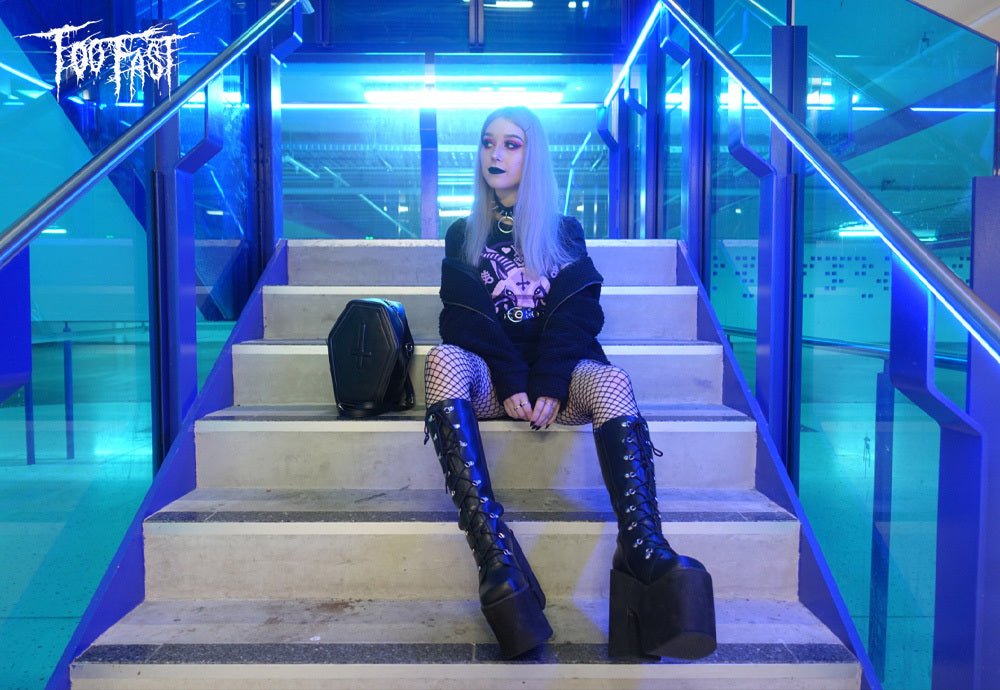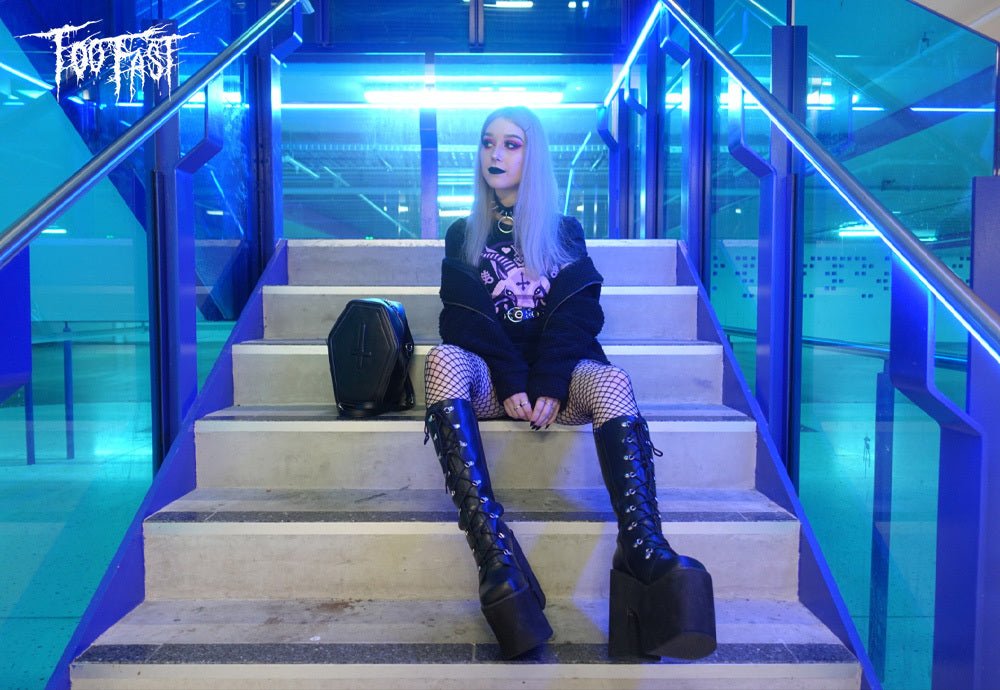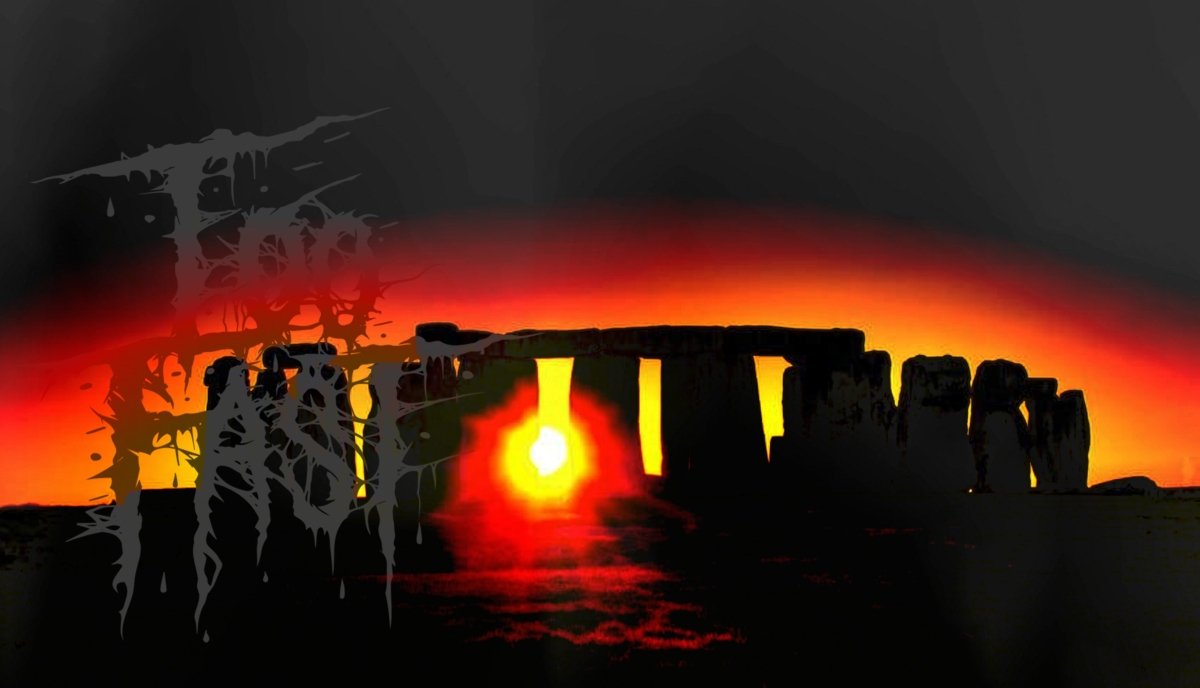
Hey there fashionistas! Do you know what punk fashion is? Or, more specifically, what punk style is?
If not — today’s your lucky day! We’re diving in head first to the world of punk. Keep reading if you want to know what punk is and why it’s so popular.
WHAT IS PUNK
There’s so much to unpack about punk!
But, basically, punk is a subculture. It’s characterized by a rebellious, anti-establishment, and non-conformist attitude. Can you identify?
THE BIRTH OF PUNK
The punk movement began in the 1970s in the United States. It was also heavily inspired by the social and economic conditions — which pretty much sucked — in England around the same time.
A lot of people attribute the start of punk to an influential British fashion designer named Vivienne Westwood. She’s the lady to thank for underwear-as-outerwear, creating the “mini-crini,” the revival of the corset and most importantly the still popular bondage pant.
Elsewhere, though, you’ll see that punk music seems to pre-date punk fashion. Punk music , with its origins in New York City, was riffing off of the American countercultural push of the late 1960’s and 1970’s.
No matter how you look at it, it’s clear that punk is a combined product of US and UK youth cultures responding to their times.
"Punk has always been about doing things your own way. What it represents for me is ultimate freedom and a sense of individuality."
— Billie Joe Armstrong, Green Day

WHAT DEFINES PUNK STYLE
Punk style has infiltrated multiple facets of daily life. Let’s take a look at two main areas it’s left its imprint: music and fashion.
THE RHYTHMS OF PUNK MUSIC
You’re probably already familiar with punk music — maybe you even have some thumping away on max volume right now... Anyway, this genre is known for having fast tempos, loud guitars, and chaotic sounds. Examples of some of the most famous punk bands include:
- Ramones
- Sex Pistols
- The Slits
- Dropkick Murphys
- The Clash
PROFILING PUNK FASHION
But, what about punk fashion? What makes punk fashion so distinctive — and still so relatable for so many people today! — is its bold, anything-goes flair.
Punk clothing is super wide-ranging, but here are some traits that are frequently dubbed “punk”:
- Materials like leather and spandex
- Metallic touches like chains, zippers, pins, and studs
- Dark, moody hues like black and gray
- High-contrast accents in white or bright colors
- Erotic, provocative, or shocking motifs that pull from music, horror, and other dimensions of anti-conformist culture
- Bold lines and cuts
- Revealing or suggestive pieces like hot pants, sheer or low-cut shirts, stockings, or tight or ripped pants
- Lacy or strappy frills
- Clever, outspoken, or in-your-face phrases
It’s common for these elements to be blended. At first blush, it may seem ironic to wear a death-themed tee with leggings featuring pink bows — but, hey, it works! And, that’s why a moto jacket paired with a second-skin crop top, mini skirt, fishnets, and chunky boots is A-OK for any punk diva!
BEYOND YOUR PUNK WARDROBE
And, of course, this can carry over to your hair, cosmetics, body modifications, and accessories, too. Punk fashion is no stranger to:
- Dramatic makeup
- Tattoos and scarification
- Piercings and implants
- Mo/faux/euro-hawks and shaved/buzzed or spikey hairdos
- Colorfully-dyed and/or bleached tresses
Overall, there’s no one, all-encompassing punk design aesthetic. Punks would probably want to bust those rules anyway, right? And, style is always evolving. There’s a lot of room to make punk style your own damn thing!
BE PUNK: EXPRESSIVE, UNAPOLOGETIC, YOU
Punk style started in the 1970s but is alive and kickin’ today. A reflection of or reaction to cultural issues of the era, punk has left its stamp on fashion and music.
You can embrace the hallmarks of punk fashion — impactful use of color, bold lines and materials, and almost-excessive attitude — to create your own unique version punk style.
"I do what I want. I'm punk rock."
— Patti Smith






